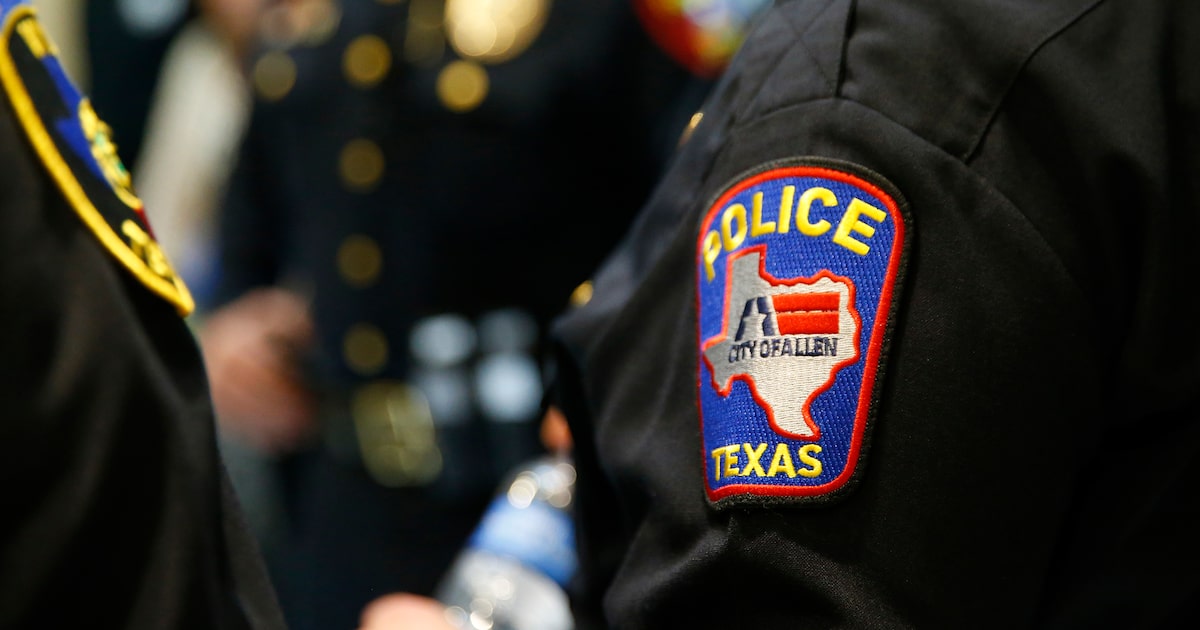Allen’s smoke shop industry is once again under the spotlight amid a statewide push to ban some hemp products.
Allen police, in partnership with the federal Drug Enforcement Administration, raided three Dallas warehouses and several homes for illegal THC products, the police department said in a Tuesday news release.
The city is already dealing with a lawsuit in connection with a string of Allen police raids on smoke shops last year.
Authorities carried out searches at the warehouses for hemp-based product distributors Monster Smoke Warehouse, Frontline Wholesale and Cannify Distribution, as well as the residences of the businesses’ owners. Investigators seized about 75,000 pounds of products, and no arrests were made at the time, Allen police told The Dallas Morning News.
“These search warrants were the result of several months of investigation, during which undercover officers, on multiple occasions, purchased illegal THC products directly from the warehouses,” the police department said in the news release.
Police said the products seized had a THC level between 7% and 79%, compared to the legal level of 0.3%.
The raid came less than a year after Allen police raided nine hemp shops accused of selling products with illegal levels of THC last August.
San Marcos-based attorney David Sergi, who represents Monster Smoke Warehouse and at least eight of the nine stores targeted by police in August, said the raid Tuesday was “nothing but political theater.”
Sergi also questioned the testing methods used by authorities to determine the concentration of THC in the product seized. He expects to challenge the forfeiture in court, he added.
An April report by the Texas Forensic Science Commission seemed to support some of Sergi’s criticism of the testing methods. The report questions the reliability of some state lab tests on the THC levels in hemp-based products.
The raid comes as Texas Gov. Greg Abbott considers a total ban on gummies, vapes, edibles and other consumables made with hemp-derived tetrahydrocannabinol — or THC, the psychoactive ingredient in marijuana. Texas lawmakers passed Senate Bill 3 in May to criminalize the sale.
At a March senate committee hearing on the proposed ban, Allen Police Chief Steve Dye told lawmakers that smoke shops in the state are selling illegal hemp-based products, and described them as a “plague.”
Roughly 8,500 retailers have sprung up in the last five years across Texas, making up an $8 billion industry.
Abbott has not publicly stated whether he will sign or veto the bill, as he promised to weigh the ban “from every angle it deserves” during a conversation with reporters in his office last week.
The governor can choose to sign the bill or let it go into law without his signature. If he doesn’t veto it, the THC ban would go into effect in September. Retailers would be given until January to reach full compliance.
SB 3 carves out an exemption for nonintoxicating hemp products that don’t include THC, such as cannabidiol (CBD), which has been approved by federal regulators to treat some conditions.
THCA and delta-8 consumables, which were legalized through a loophole in the 2019 Farm Bill, would be illegal under SB 3. The Farm Bill defined “hemp” as “cannabis and derivatives of cannabis with no more than 0.3% THC on a dry weight basis,” according to the Food and Drug Administration.
Staff writer Hojun Choi contributed to this reporting.


